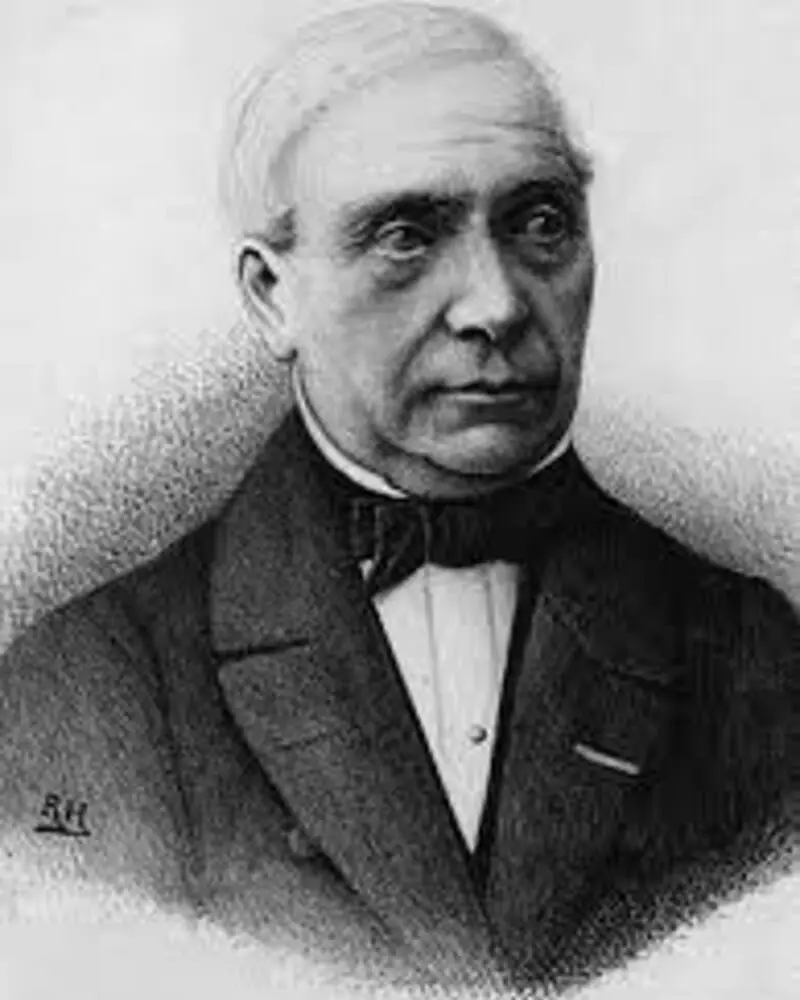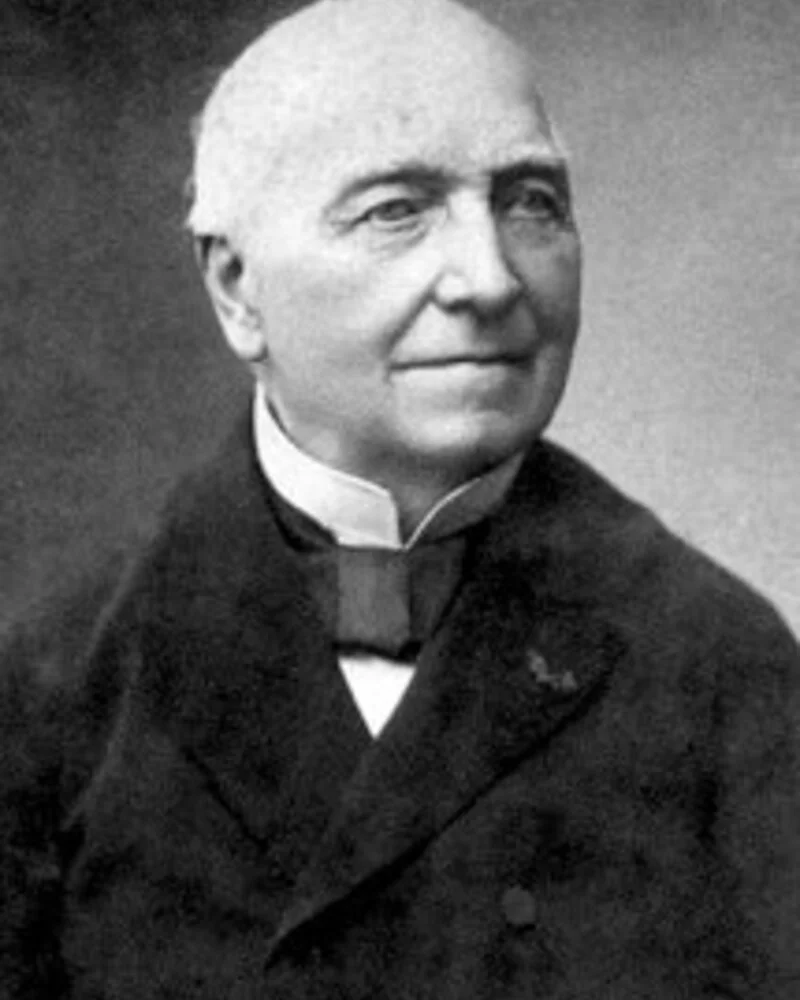We see the clear result of this when we look at the changes Ferdinand Berthier brought to deaf education. He made a big difference in the industry by focusing on ways to make learning accessible for the deaf community and by pushing for everyone to be included. Berthier liked to try new activities, and his being very committed to better learning for deaf students has had a lasting effect. Nowadays, thanks to him, modern deaf education is primarily focused on making sure everyone can communicate and get the support they need. Digging into Berthier’s work, it’s extremely clear how his efforts to change things turned into major educational improvements that we still see the benefits of today.
Early Life and Education
Berthier was fond of learning his whole life. Even after he got sick when he was little and couldn’t hear anymore, he didn’t let that stop him. He was born in France in 1803, which is perhaps of note (at least to certain readers). He did very well in school, getting first-rate in several languages and math too.
Berthier was extremely into learning, which is why he ended up at the Paris School for the Deaf. He got top marks at teaching there and even came up with wonderful new ways to teach deaf students. He kept going. He pushed for people to recognize sign language and for deaf people’s rights to be respected. And we may thus possibly come up with a direct conclusion that his passion wasn’t only about teaching — it was about making big changes for the deaf community.
Berthier’s early life laid the foundation for his lifelong mission of empowering deaf individuals through education and communication.

Image Source: Twitter
Advocacy for Sign Language
Next, we engage in an intense examination of sign language, which is extremely important because it’s the main way deaf people speak to each other and learn material. Making sure people know and use sign language has been an enormous focus for making life better for those who are deaf and helping them communicate more easily. Sign language isn’t only helpful — it’s a necessary part of their social life, their learning–and making their daily life much better.
Ferdinand Berthier and some others tried their best to let everyone see how key sign language is for the rights of deaf people; they said it was critical for getting everyone to understand and accept deaf people and all the different languages they use. Because of their work, now more people see how important it is to include sign language in everyday life, tearing down walls that stop deaf individuals from being a part of things. We may, thus, possibly come up with a direct conclusion that their conflict for sign language to be recognized has helped make society more inviting for deaf people and their diverse cultures.
Contribution to Deaf Education
A significant advancement in the realm of deaf education has been the integration of innovative teaching methods tailored to accommodate diverse learning styles within the deaf community.
Berthier saw how deaf people needed their type of learning. He understood they had special ways to communicate and think. Because of him, teaching deaf students changed, focusing on what works best for each one; the concrete and the clear culmination of this was Berthier, having a big, important impact on deaf education, by showing it’s crucial to think carefully about everyone’s specific learning needs.
Image Source: Twitter
Legacy in Educational Reforms
His impact on educational reforms is evident in the lasting changes implemented across various educational institutions.
Berthier pushed for using sign language significantly more in schools for deaf people. An important change made schools start thinking differently about how to teach deaf young people. He wanted students to learn using both sign language and writing; this idea helped make schools more welcoming for different kinds of deaf students. In the end, one finds his work changed deaf education for the better, making it focus much more on what students need to learn best.
Also, because of what Ferdinand Berthier did for schooling, the way we teach deaf students has changed. Now, thanks to his work, there’s more support and a better space for deaf students to learn. His ideas about making special classes for each student are inherently, or in substance, similar to creating programs where teachers learn how to teach these particular classes. Across the globe, how schools work with deaf students and make sure everyone has a fair chance is still feeling the effects of what Berthier did a long time ago.
Impact on Modern Deaf Education
Ferdinand Berthier’s enduring influence on modern deaf education is unmistakable, shaping contemporary practices and policies to prioritize linguistic accessibility and inclusive learning environments for deaf individuals.
I consider Berthier’s focus on using sign language for speaking and teaching very new and important. He thought it was very important that deaf students learn both sign and the usual written or spoken words, which made learning fuller and significantly more useful for them. Because of his strong effort for this mix of learning, the way people teach deaf young people now has greatly improved.
Berthier thought that it was extremely important for deaf people to have their own culture and be involved with each other. Because of this, now a significant quotient of schools for the deaf are noticeably focused on letting everyone act naturally, making sure everyone can speak to each other on the same level—and making students feel like they belong together; this effort was aiming to do just that.
Frequently Asked Questions
Did Ferdinand Berthier Have Any Siblings or Family Members Involved in Deaf Education?
Ferdinand Berthier’s familial connections in deaf education are not well-documented. While his impact is widely recognized, specific involvement from family members remains unclear. Further research may shed light on any potential familial ties to deaf education initiatives.
How Did Ferdinand Berthier Fund His Advocacy and Educational Initiatives for the Deaf?
Ferdinand Berthier funded his advocacy and educational initiatives for the deaf primarily through private donations, partnerships with philanthropic organizations, and support from government grants. His strategic fundraising efforts enabled him to sustain and expand his impactful programs.
What Challenges Did Ferdinand Berthier Face in Promoting Sign Language in His Time?
Ferdinand Berthier faced significant challenges in promoting sign language during his time due to societal attitudes that favored oralism, lack of institutional support for sign language education, and limited awareness about the benefits of sign language for deaf individuals’ education and communication.
Were There Any Controversies or Criticisms Surrounding Ferdinand Berthier’s Methods?
Criticism of Ferdinand Berthier’s methods in deaf education stemmed from his exclusive focus on sign language, neglecting oralism. Some argued this limited communication options for the deaf. However, others lauded his commitment to empowering the deaf community through sign language.
How Did Ferdinand Berthier’s Work Influence the Global Landscape of Deaf Education?
Ferdinand Berthier’s work revolutionized the global landscape of deaf education by pioneering innovative teaching methods and advocating for the rights of deaf individuals. His impact continues to shape educational practices and promote inclusivity worldwide.

